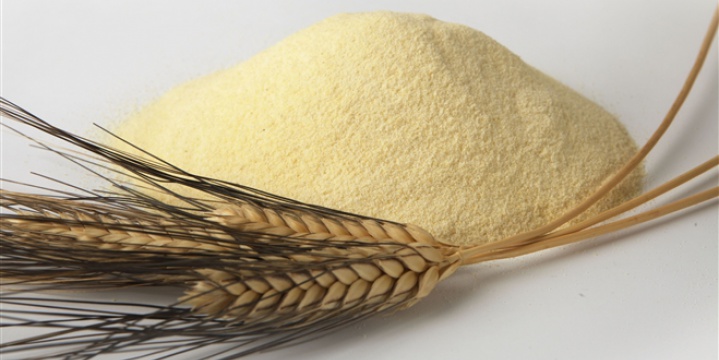
Granoro produces high-quality pasta, selecting and using only the
best raw materials on the market in its production process. It uses
high-quality durum wheat semolina purchased from mills located
exclusively in Puglia, selected in accordance with strict quality
standards and carefully analysed during the acceptance stage by its own
in-house analysis laboratory.
Granoro uses semolina of an even yellow colour, which is free from bran
particles, has a high protein content and contains good quality gluten
that is strong and elastic.
The first part of the production process is when the durum wheat
semolina is mixed with water to make the dough. During this stage, the
hydration and mechanical action that take place inside the kneading
tanks are essential for the formation and development of starch and
gluten, a plastic and elastic protein complex of gliadins and glutenins.
After cooking, this complex provides the pasta with the elasticity and
consistency typical of high-quality pasta, which in mastication is a
sensation defined as al dente (an Italian term meaning firm to the
bite).
Granoro pasta is made using semolina obtained from the heart of the durum wheat grain, which is the best part for creating pasta of the highest quality
Gluten, one of the proteins found in durum wheat, has a reticular structure that captures starch granules hydrated by water in the dough within its mesh. Starch is a complex sugar that is very important for our organism, especially for the correct functioning of our body’s muscles, including the brain. It is therefore important that the gluten molecules capture the starch; otherwise, it would be lost in the cooking water. Gluten must therefore be good quality, that is to say strong and elastic and must not be degraded by an incorrect kneading process that could damage its reticular structure.
The dough obtained is then turned into various pasta shapes during the extrusion process.